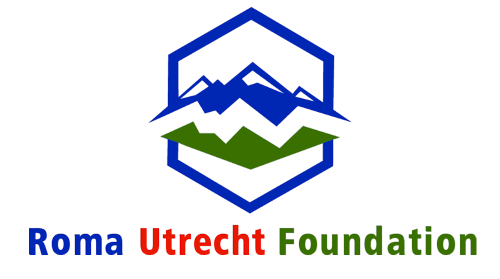Conference on fighting antigypsyism in the Western Balkans
The Central Council of German Sinti and Roma, ERGO Network, Roma Active Albania and the Permanent Representation of Germany to the European Union organised on 25 March 2021 the virtual conference “Role of the European Union and of individual Member States to fight antigypsyism in the Western Balkans and to ensure inclusion of Roma”.
The goal of the conference was to discuss with representatives of the European Commission and of individual EU Member States the need to fight antigypsyism in the Western Balkans and the need to include the position and situation of Roma in all relevant policies of the European Union with regard to the countries in the accession process.
The new “EU Roma Strategic Framework for Equality, Inclusion and Participation” is equally relevant for the countries in the Western Balkans, which requires them to include the fight against antigypsyism in the strategies and action plans that are in the process of development.
Also in October 2020, the European Commission adopted the “Economic and Investment Plan for the Western Balkans” as part of the 2020 Enlargement Package, which emphasises that “the integration of Roma people into society by supporting their full participation in education and in the labour market is of particular importance and will be a key priority of the EU integration process”.
Against this background, the conference focused on providing representatives of the Roma with the opportunity to present their position and their proposals for policies and measures and to discuss them with representatives of the European Commission and Member States of the European Union.
The conference was opened with encouraging remarks of Ambassador Thomas Ossowski from the Permanent Representation of Germany to the European Union and Colin Wolfe from the European Commission, Directorate-General for Neighbourhood and Enlargement Negotiations (DG NEAR), Head of Western Balkans Cooperation. Romani Rose, Chairman of the Central Council of the German Sinti and Roma also welcomed the participants and talked about the experiences of the civil rights movement of the German Sinti and Roma to fight antigypsyism, which can serve as and example for other countries both in the EU and the Western Balkan.
Following the keynote speech by Gabriela Hrabanova, Executive Director of ERGO Network on “the need to fight antigypsyism and to include the position and situation of Roma in all relevant policy fields”, a panel with a wide range of participants combined the position and activities of the European Union with experiences and requests from representatives of the civil society and other representatives of the Roma.
The panel addressed from several perspectives not only how the fight against antigypsyism could be strengthened in the Western Balkans, but also how a new policy approach with Roma in the Western Balkans could be achieved.
The representative of DG NEAR, Liselotte Isaksson, talked about the role of civil society in the Western Balkans in promoting inclusion of Roma and fighting antigypsyism” and Hristina Petkova from DG JUST informed about the focus on antigypsyism in the new EU Strategic Framework for Roma and the approach within the European Union.
Orhan Usein from the Roma Integration Team 2020 of the Regional Cooperation Council informed about the state of affairs and the involvement of the governments with regard to addressing antigypsyism in the new national Roma inclusion strategies.
Several Romani representatives presented their activities. Isabela Michalache (ERGO Network) informed about a new project on “Romani women – Power of change in the Western Balkans and Turkey” while Petrica Dulgheru, Executive Director Roma Entrepreneurship Development Initiative (REDI) talked about their activities in the Western Balkans and about Romani entrepreneurs as a driving force.
Isak Skenderi, Executive Director, Voice of Roma, Ashkali and Egyptians, Kosovo, informed about their activities in Kosovo, in particular focusing on the successful cooperation of Romani civil society with international actors and the government in combatting antigypsyism. Petar Antic talked about the project “Inclusion of Roma and other marginalized groups” that GIZ Germany implements in Serbia. The project includes a strong anti-discrimination focus and could serve as a promising practice for the region.
Finally Marija Sulejmanova of Romalitico in North Macedonia informed about the situation of Roma during the COVID 19 pandemic and their activities regarding the inclusion of Roma in assistance programmes to fight the pandemic.
The virtual conference was a first step in advocating for more activities in the Western Balkans to fight antigypsyism and to include the situation and position of Roma in all relevant policy fields. In this context, the active participation of the Roma is crucial and key to success and sustainability.
The Central Council of German Sinti and Roma, ERGO Network and Roma Active Albania will continue their respective activities and encourage not only the European Commission, but also individual Member States to step up their activities with Roma in the Western Balkans.



 Utrecht Foundation & the Roma Advocacy Network Netherlands, we have been working for almost for 20 years as volunteer activists from the Roma grassroots level. In October 2020 a motion by Selçuk Öztürk on antigypsyism and how to combat this injustice has been adopted by the majority of the Dutch National Parliament.
Utrecht Foundation & the Roma Advocacy Network Netherlands, we have been working for almost for 20 years as volunteer activists from the Roma grassroots level. In October 2020 a motion by Selçuk Öztürk on antigypsyism and how to combat this injustice has been adopted by the majority of the Dutch National Parliament.
 face economic and social inequalities and live in a position particularly vulnerable to violence and discrimination. Compared to most women in the Czech society, these women are often at higher risk of social exclusion, live under worse material conditions, and have a lower quality of life. The problems of these women are often overlooked, which is why the Invisible Power coalition, with the support of the German EVZ Foundation, was founded—to give these women space to be seen and heard. The coalition represents a collaborative effort of the Czech Women’s Lobby (CWL) and its member organizations Association for Integration and Migration (SIMI) and SLOVO 21, under which the Roma women’s group Manushe operates.
face economic and social inequalities and live in a position particularly vulnerable to violence and discrimination. Compared to most women in the Czech society, these women are often at higher risk of social exclusion, live under worse material conditions, and have a lower quality of life. The problems of these women are often overlooked, which is why the Invisible Power coalition, with the support of the German EVZ Foundation, was founded—to give these women space to be seen and heard. The coalition represents a collaborative effort of the Czech Women’s Lobby (CWL) and its member organizations Association for Integration and Migration (SIMI) and SLOVO 21, under which the Roma women’s group Manushe operates.
 The employee expects 8 half-day theoretical trainings and 16 half-day practical workshops (2 trainings and 4 workshops in each locality) in the field of advocacy activities. The participants will then be permanently supported by experts in the form of tailor-made consultations.
The employee expects 8 half-day theoretical trainings and 16 half-day practical workshops (2 trainings and 4 workshops in each locality) in the field of advocacy activities. The participants will then be permanently supported by experts in the form of tailor-made consultations.
